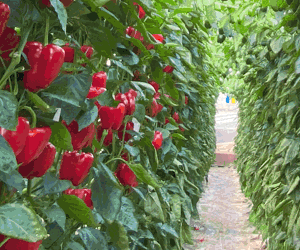Initiatives
BASF announces investments and initiatives for agriculture in Asia Pacific
Today BASF’s Crop Protection division presented its solutions for the future of food availability and quality of life in Asia Pacific.
5/23/2013

basf_agro

Today BASF’s Crop Protection division presented its solutions for the future of food availability and quality of life in Asia Pacific. BASF aims to address these challenges by introducing new technologies, broadening farmer education and co-creation initiatives, increasing investments in production capacity and R&D as well as collaborating with food value chain partners. These initiatives will enable BASF to support growers in Asia Pacific more efficiently and broadly.
From 2008 to 2012, the Crop Protection division’s R&D expenditures have grown annually by 7% on average, from €325 million to €430 million. The company will continue to invest heavily in R&D projects in the future. Over the next few years, BASF also plans to spend on average €300 million annually on additional production capacities globally for its portfolio of agricultural solutions. “These investments mean that BASF can continue to support food availability in Asia Pacific and around the world more broadly,” said Markus Heldt, President of BASF’s Crop Protection division. “We are specifically investing in research, development and production in Asia Pacific as part of BASF’s globalization efforts, which will enhance our collaboration with growers in the region.”
Expanding production in Asia Pacific
BASF will build a new formulation and packaging plant for crop protection products in Rudong, Jiangsu Province, China. With an annual capacity of 10,000 metric tons, the plant is expected to be fully operational in 2014 and will have more than 100 employees. “The site will cover nearly our entire solution portfolio, which will enable us to respond much more quickly and efficiently to growers’ needs in China and Southeast Asia,” said Raman Ramachandran, Senior Vice President BASF Crop Protection Asia Pacific.
Food security – an increasing issue in Asia Pacific
With the most rapidly increasing population, strong demand growth and continued urbanization, food production in Asia Pacific is facing huge challenges. “ Food security is back on the global agenda”, said Prof. Peter Warr, Australian National University College of Asia and the Pacific and guest speaker at the BASF Media Event . “ Enhancing food security requires reducing the relative price of food, reducing poverty, and raising productivity through improved agricultural technology.” Warr emphasized that Asia Pacific has great potential for increased productivity. To reach that goal, research and development activities are needed with results that can be adapted to individual countries and regions.
Grower programs and field schools make the difference
In many countries across Asia Pacific, BASF coordinates grower education initiatives , highlighted by the Samruddhi program in India and field schools in Indonesia. In 2012 alone, nearly 250,000 local growers participated in these initiatives. Participants receive practical advice and assistance throughout the entire growing season. In 2012, Samruddhi soybean farmers achieved an average of 25% more yield and 36% higher net profit compared to non-program farmers. Similar results were recorded by corn and rice growers as part of farmer field schools in Indonesia. These activities reflect BASF’s broader commitment to providing solutions directly tailored to farmers’ needs.
Expanding plant health in Asia Pacific
BASF will expand its globally-successful AgCelence® portfolio for plant health in more than 10 additional crops, especially fruits and vegetables, in Asia Pacific by 2015. Since 2011, BASF has offered the AgCelence portfolio, which provides plants with better stress tolerance, growth performance and vitality, to the Asian market, primarily for soybeans, corn, cotton and select fruits and vegetables. “With AgCelence, farmers can potentially increase marketable yields by 5-10% as well as improve their farming efficiency,” said Ramachandran. “It is well-established in India, China, Indonesia and Vietnam and will expand to other markets in the region.”
Driving sustainability performance with the food value chain
In 2011, BASF entered the field of sustainability measurement and consulting. With the methodology AgBalance™, the company helps growers and food suppliers to review their own operations in order to become more sustainable. AgBalance assesses sustainability according to economic, environmental and social criteria. A study with Chinese tomato producer COFCO Tunhe is currently being conducted. The study will measure the sustainability performance of COFCO Tunhe’s farms to identify potential improvement strategies, particularly with regard to fertilizer and crop protection use.
Creating chemistry in Asia Pacific
BASF began doing business in Asia Pacific more than a century ago. Today, it is one of the leading chemical companies in the region with a production network of more than 100 sites and operations in 16 countries. BASF aims to grow two percentage points above the Asia Pacific chemical market through 2020 and in 2012 achieved €12.5 billion sales to customers in the region. “Asia Pacific is facing unprecedented challenges in maintaining natural resources, food and nutrition and quality of life. By collaborating closely with customers, partners and communities in Asia Pacific, we can address these challenges through chemistry-based solutions,” said Gops Pillay, President, South and East Asia, ASEAN and Australia/New Zealand, BASF.
Fruit, Vegetables, Citrus, Olive growing, Gardening, Herbs & Cereals, Aromatic plants, Grape-growing, Forestry, Machinery news